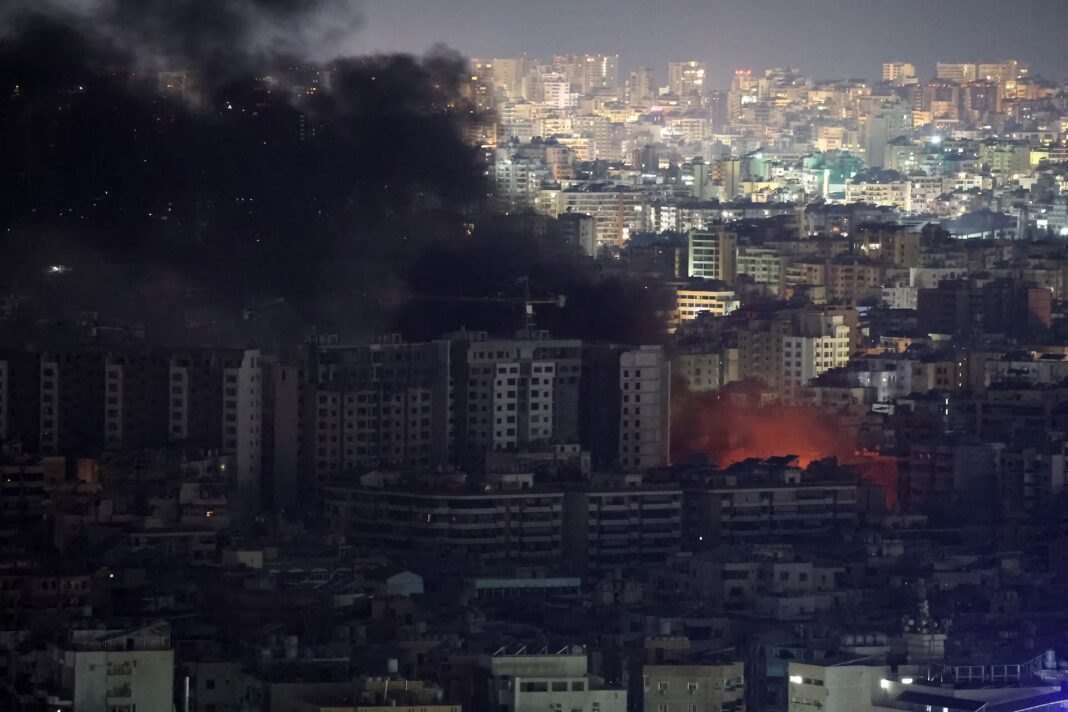Conflict Intensifies Between Israel and Hezbollah
The ongoing conflict between Israel and Hezbollah has escalated, drawing international concern in Lebanon. The U.S has expressed a strong desire for the fighting to end soon, as prolonged battles risk severe consequences for the entire region. The fighting has already caused significant damage, and efforts are now focused on finding a peaceful resolution.
U.S. Concern Over Lengthy Conflict
The U.S. Secretary of State emphasized that the United States does not support a drawn-out military campaign by Israel in Lebanon. There is an urgent need for the fighting to stop before the conflict spirals further. This concern comes as Israel continues to strike Hezbollah positions in southern Lebanon. The U.S. is also concerned about the possibility of further escalation, especially with Iranian-backed Hezbollah involved in the conflict.
Escalation Along the Israel-Lebanon Border
The conflict, which started with cross-border hostilities, has intensified. Israeli strikes have targeted Hezbollah strongholds, particularly in southern Lebanon, the suburbs of Beirut, and the Bekaa Valley. Lebanese authorities report that over 2,500 people have died, and more than a million people have been displaced. The humanitarian crisis in Lebanon has worsened, with civilians facing the brunt of the destruction.
In response, Hezbollah has launched several missile strikes into northern Israel. Israeli officials report that around 120 projectiles were fired across the border on Thursday alone. Air raid sirens and explosions filled the air in northern Israeli towns, as the country’s defences intercepted many of these missiles.
Renewed Diplomatic Efforts
Despite the heavy fighting, diplomatic efforts to broker a ceasefire are underway. U.S. and Israeli negotiators are scheduled to meet in Doha, Qatar, to discuss terms for a ceasefire in Gaza and the release of hostages held by Hamas. Israel’s intelligence agency, Mossad, is playing a key role in these discussions, alongside the CIA and Qatari officials.
Lebanon, meanwhile, is seeking a resolution that includes the withdrawal of Israeli forces from its territory. The Lebanese army is also involved in efforts to regain control of areas currently under Hezbollah’s influence in southern Lebanon. A ceasefire could be the first step toward restoring stability to the region, but reaching a comprehensive agreement remains a challenge.
Humanitarian Impact and International Aid
The humanitarian situation in Lebanon is deteriorating. Over a million people have been displaced due to the violence, and Lebanese cities, including the capital Beirut, have been hit hard by airstrikes. In response, international organizations are stepping up aid efforts. A recent conference in Paris raised significant funds to support both the Lebanese military and humanitarian operations in the country.
Countries around the world, including France, have called for an immediate ceasefire. Many governments argue that continued strikes will only worsen the situation and lead to more civilian casualties. Humanitarian groups are particularly concerned about the lack of access to critical supplies and medical aid for those affected by the fighting.
Ceasefire Possibility
There are glimmers of hope for a ceasefire. Israeli military leaders have indicated that an end to the fighting with Hezbollah might be possible. Israel claims it has severely weakened Hezbollah’s command structure, which could pave the way for a resolution.
However, the situation remains volatile. Lebanese leaders have warned that the country is on the brink of complete destruction if the conflict continues. The international community is pressing both sides to find a diplomatic solution, though achieving lasting peace will require significant cooperation.
The Bigger Picture: Implications for the Region
The conflict between Israel and Hezbollah is part of a larger struggle that involves multiple countries in the region. Iran’s role in supporting Hezbollah has been a major factor in the violence. The United States hopes that Iran is receiving a strong message to avoid further escalation. Any direct involvement by Iran in the conflict could lead to even more widespread fighting, not just in Lebanon but across the region.
In conclusion, while there are efforts to bring about a ceasefire, the situation remains highly dangerous. The ongoing conflict between Israel and Hezbollah has caused enormous damage and suffering, and the international community is working urgently to prevent further bloodshed. The outcome of diplomatic talks in the coming days will be crucial in determining whether peace can be restored.

